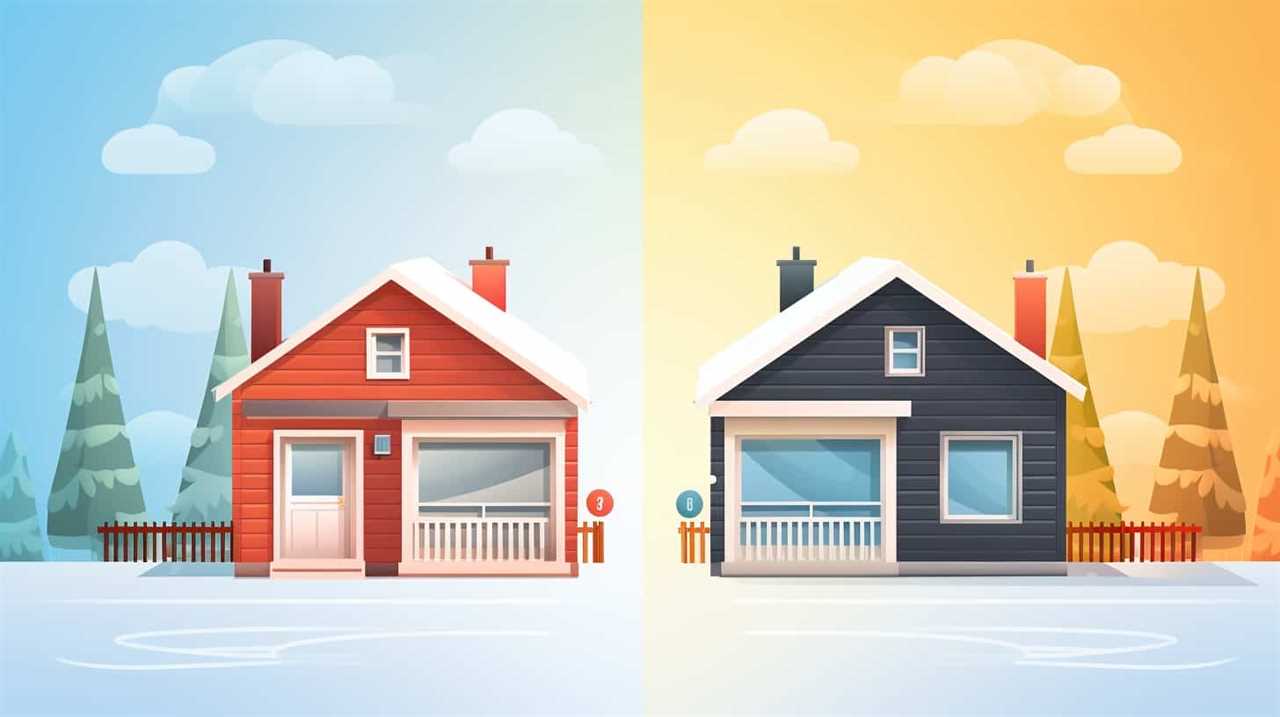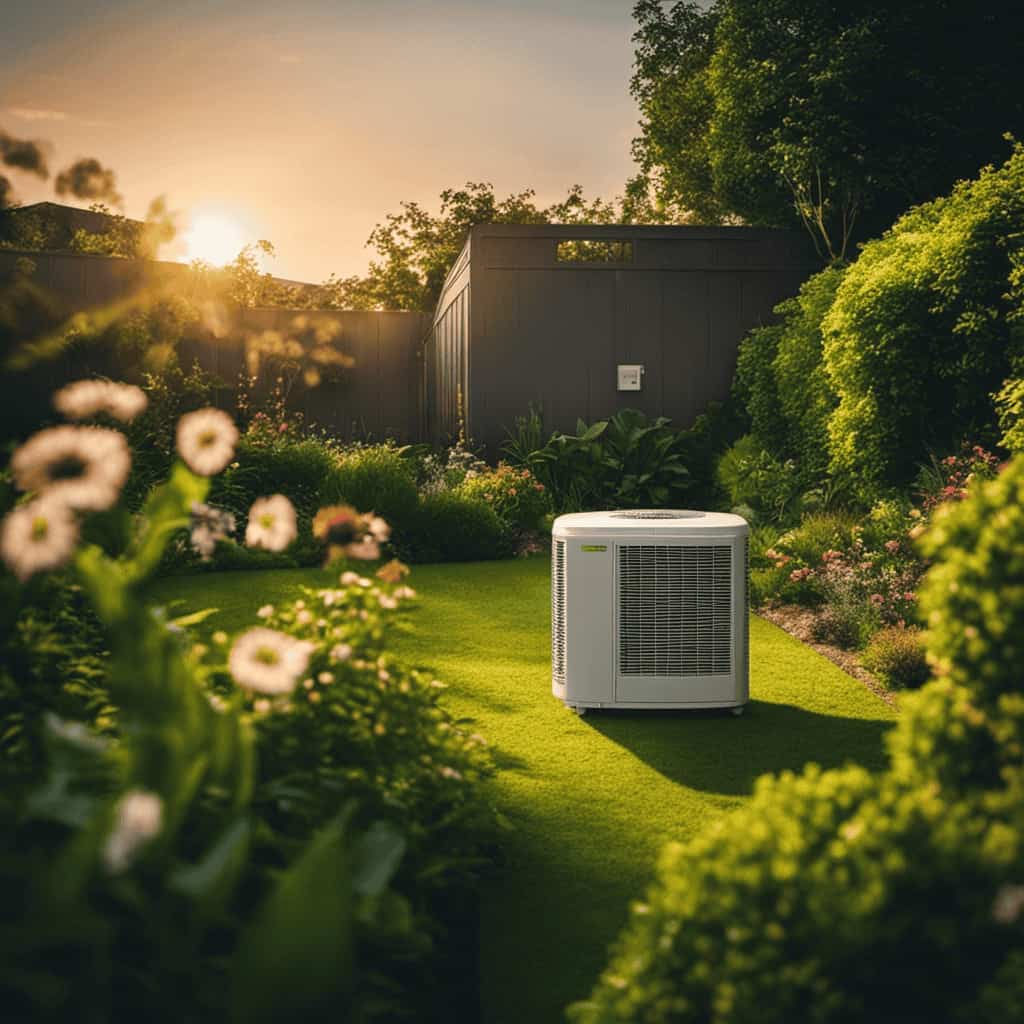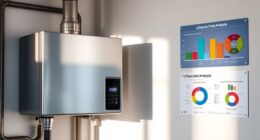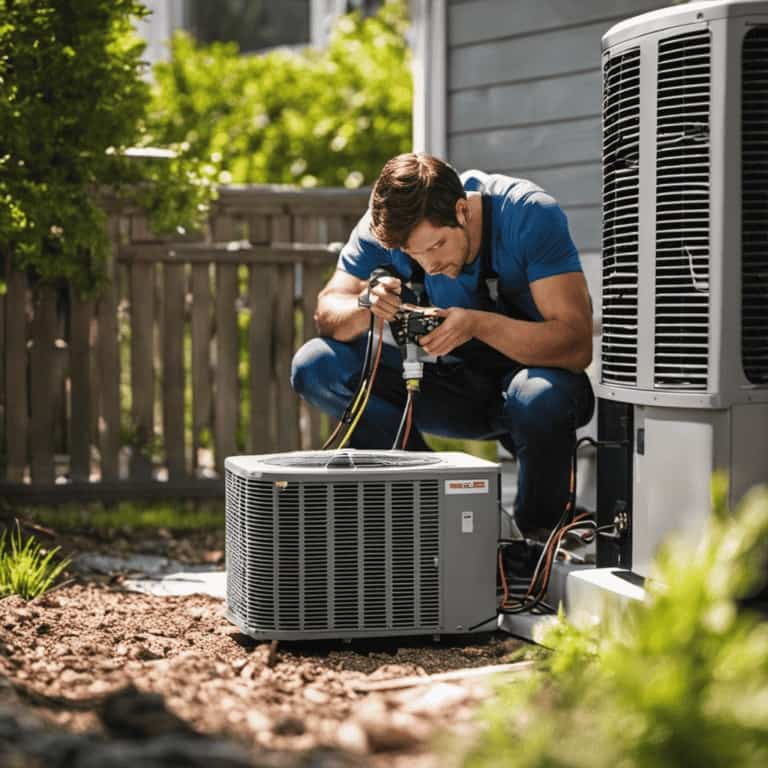
Imagine a situation where your energy costs decrease significantly, your home becomes even more comfortable, and you help the environment. This dream becomes a reality with the use of heat pumps.
We’ll break down the top savings achieved with heat pumps, from lower heating costs to decreased cooling expenses.
Not only will you enjoy enhanced energy efficiency and long-term cost savings, but you’ll also reduce your carbon footprint and increase your home’s value.
Plus, take advantage of government incentives and rebates for even more savings.
Key Takeaways
- Heat pumps can save homeowners up to 50% on their annual heating and cooling costs compared to traditional HVAC systems.
- Heat pumps often qualify for various rebates and incentives, further reducing upfront costs and increasing long-term financial benefits.
- Heat pumps provide enhanced energy efficiency, leading to significant savings on energy bills.
- Installing a heat pump can increase the value of the home by 5% to 12%.
Reduced Energy Bills
We’ve found that heat pumps can lead to significant savings on energy bills. Heat pumps are an energy efficient technology that can greatly reduce the amount of energy needed to heat or cool a home. This efficiency translates to substantial financial benefits for homeowners.
According to a study conducted by the U.S. Department of Energy, heat pumps can save homeowners up to 50% on their annual heating and cooling costs compared to traditional HVAC systems. This means that over time, the savings can add up to thousands of dollars.
Additionally, heat pumps often qualify for various rebates and incentives, further reducing the upfront cost and increasing the long-term financial benefits. Investing in a heat pump isn’t only a smart move for the environment but also for your wallet.
Lower Heating Costs
How can heat pumps help us save on heating costs?

Heat pumps are a cost-effective and energy-efficient heating solution that can significantly reduce heating expenses. Compared to traditional heating systems, heat pumps can provide savings of up to 50% on heating costs. This is because heat pumps transfer heat from the outside air or ground to the inside of a building, rather than generating heat through combustion. By utilizing this method, heat pumps consume less energy, resulting in lower heating bills.
Additionally, heat pumps can be even more efficient when paired with other energy-saving measures such as proper insulation and sealing. With their ability to provide energy-efficient heating, heat pumps are a smart choice for those looking to reduce their heating costs and save money in the long run.
Transitioning into the subsequent section about decreased cooling expenses, let’s now explore how heat pumps can also offer significant savings in cooling costs.
Decreased Cooling Expenses
With the implementation of heat pumps, we can experience reduced cooling expenses while still enjoying the comfort of a cool and refreshing indoor environment. Heat pumps provide energy efficient cooling, resulting in decreased environmental impact and significant cost savings.

Here are some key reasons why heat pumps can help decrease your cooling expenses:
Energy efficiency: Heat pumps use advanced technology to efficiently cool your space, consuming less energy compared to traditional cooling systems.
Dual functionality: Heat pumps can both heat and cool your home, eliminating the need for separate cooling systems and reducing overall energy usage.
Variable speed compressor: Heat pumps feature variable speed compressors that adjust their cooling output based on the indoor temperature, optimizing energy efficiency.
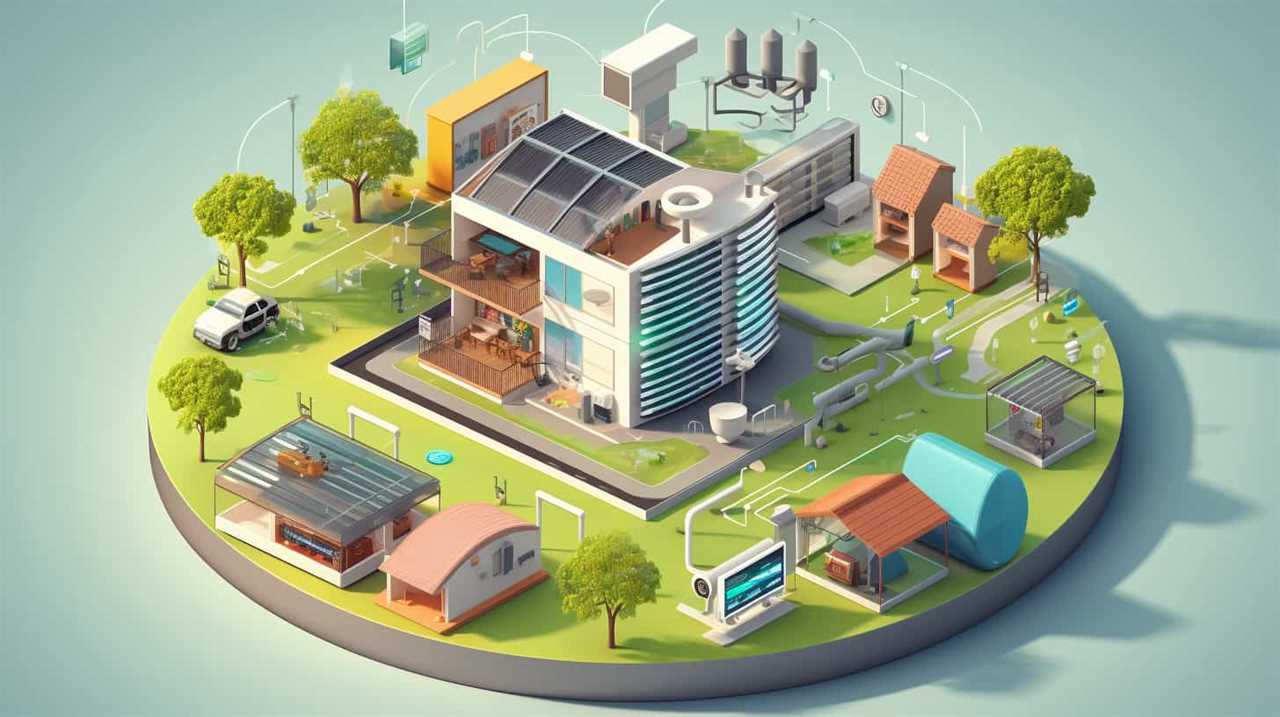
Zoning capabilities: Heat pumps allow for zoning, which means you can cool specific areas of your home instead of cooling the entire space, further reducing energy consumption.
Rebates and incentives: Many governments and utility companies offer rebates and incentives for installing energy efficient cooling systems like heat pumps, providing additional savings opportunities.
Enhanced Energy Efficiency
When it comes to discussing the enhanced energy efficiency of heat pumps, there are several points worth exploring.
Firstly, heat pumps offer significant cost savings compared to traditional heating systems, with studies showing potential energy savings of up to 50%.
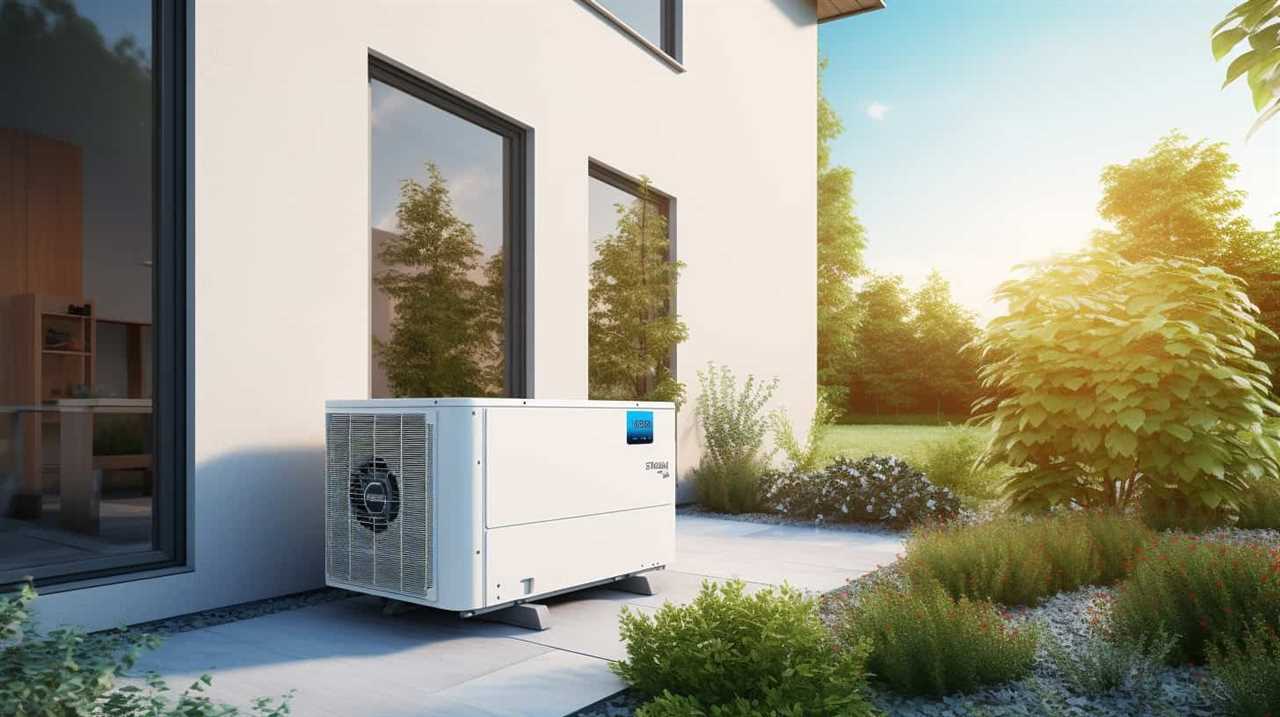
Secondly, heat pumps are an eco-friendly heating solution, as they utilize renewable energy sources such as the air or ground.
Lastly, heat pumps provide increased home comfort by maintaining a consistent temperature throughout the year, eliminating the need for separate heating and cooling systems.
Cost Savings Explained
We have seen significant cost savings through the enhanced energy efficiency of heat pumps. Here are some key points to understand about the cost savings associated with this energy efficient technology:
Lower Energy Bills: Heat pumps consume less energy compared to traditional heating and cooling systems, resulting in lower monthly utility bills.

Reduced Maintenance Costs: Heat pumps are designed to be highly reliable and require minimal maintenance, reducing the need for costly repairs and servicing.
Increased Lifespan: Heat pumps have a longer lifespan compared to conventional heating and cooling systems, providing a higher return on investment over time.
Government Incentives: Many governments offer incentives, such as tax credits or rebates, for installing energy efficient heat pumps, further reducing the upfront cost.
Environmental Benefits: By reducing energy consumption, heat pumps help to lower greenhouse gas emissions, contributing to a more sustainable future.

Investing in energy efficient heat pumps not only saves money but also benefits the environment and offers long-term financial advantages.
Eco-Friendly Heating Solution
Our heat pumps offer an eco-friendly heating solution by providing enhanced energy efficiency. By harnessing the power of renewable energy sources, heat pumps reduce carbon emissions, making them an excellent choice for environmentally conscious homeowners. Compared to traditional heating systems that rely on fossil fuels, heat pumps use eco-friendly technology to extract heat from the air, ground, or water, and transfer it to your home. This process is highly efficient, as heat pumps can provide up to four times more energy than they consume. The table below highlights the energy efficiency of heat pumps compared to other heating systems, showcasing their superior performance and environmental benefits.
| Heating System | Energy Efficiency (COP) |
|---|---|
| Heat Pump | 4.0 |
| Gas Furnace | 0.92 |
| Electric Furnace | 1.0 |
| Oil Furnace | 0.85 |
| Propane Furnace | 0.82 |
Switching to a heat pump not only saves you money but also contributes to a greener future by reducing your carbon footprint.
Increased Home Comfort
With a heat pump, we can achieve increased home comfort and enhanced energy efficiency. Heat pumps provide several benefits that contribute to a more comfortable living environment:

Energy Savings: Heat pumps are highly efficient, using less energy compared to other heating and cooling systems. This results in lower energy bills and significant long-term savings.
Improved Indoor Air Quality: Heat pumps not only heat or cool your home but also filter and dehumidify the air. This helps remove allergens, dust, and other pollutants, creating a healthier indoor environment.
Consistent Temperature Control: Heat pumps maintain a consistent temperature throughout your home, eliminating hot or cold spots and providing a more comfortable living environment.
Quiet Operation: Heat pumps operate quietly, ensuring a peaceful and undisturbed atmosphere in your home.
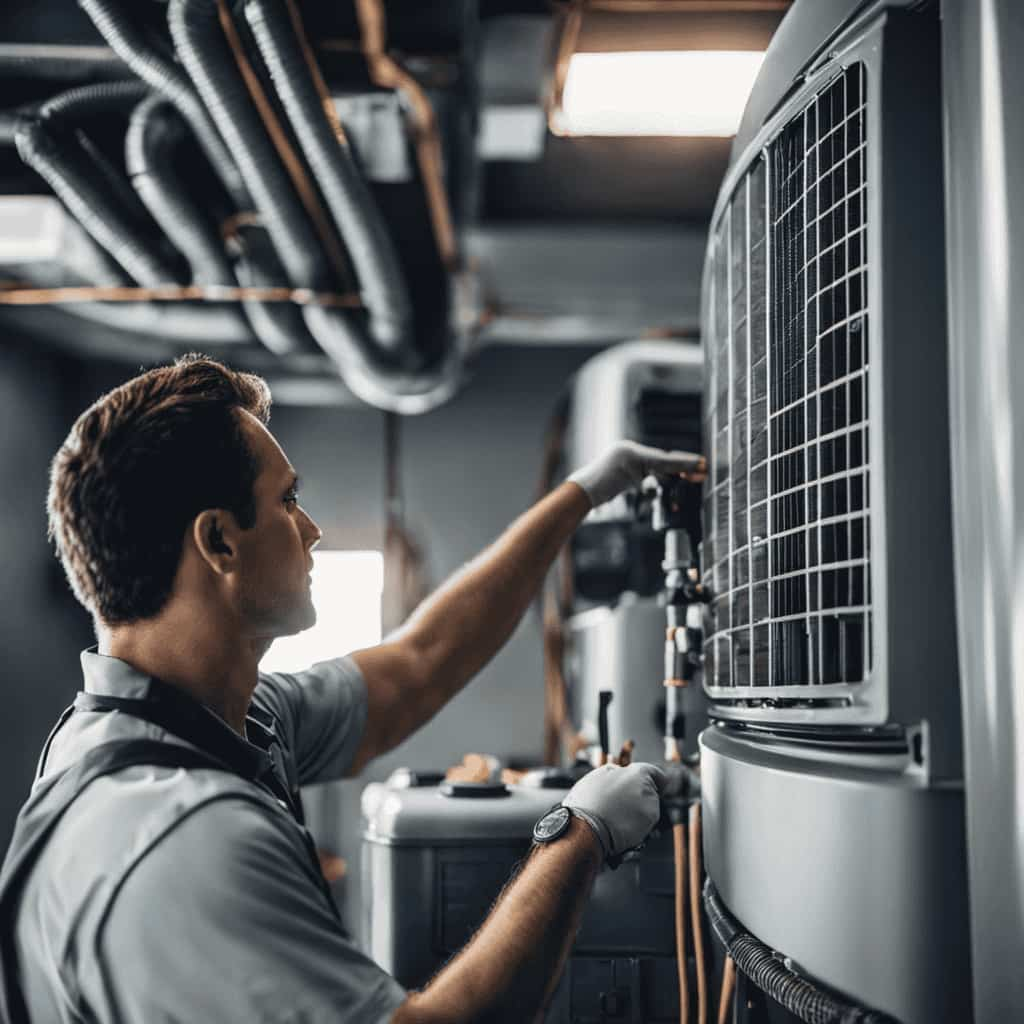
Versatility: Heat pumps can both heat and cool your home, offering year-round comfort and eliminating the need for separate heating and cooling systems.
Long-Term Cost Savings
The benefits of heat pumps extend beyond immediate savings, as they offer long-term cost reductions for homeowners. Heat pumps are a wise long-term investment due to their energy efficient technology, which allows them to provide heating and cooling at a fraction of the cost of traditional systems. Let’s take a look at the potential long-term savings that heat pumps can offer:
| Cost Savings | Description |
|---|---|
| Lower Energy Bills | Heat pumps use electricity to transfer heat rather than generating it, resulting in significant energy savings. |
| Reduced Maintenance Costs | Heat pumps have fewer moving parts compared to other heating and cooling systems, reducing the need for frequent repairs and maintenance. |
| Increased Home Value | Installing a heat pump can increase the value of your home, making it a valuable long-term investment. |
Reduced Carbon Footprint
We can significantly decrease our carbon footprint by opting for heat pumps instead of traditional heating and cooling systems. Heat pumps are more energy-efficient and produce fewer greenhouse gas emissions compared to conventional systems. Here are five ways heat pumps contribute to carbon footprint reduction and environmental impact reduction:
Energy Efficiency: Heat pumps use less energy to generate heat or cool air, resulting in lower carbon emissions.

Renewable Energy Integration: Heat pumps can be powered by renewable energy sources such as solar or geothermal, further reducing carbon emissions.
Reduced Fossil Fuel Consumption: Heat pumps rely less on fossil fuels like gas or oil, which helps decrease carbon emissions associated with their extraction and combustion.
Heat Recovery: Heat pumps can also recover waste heat, reducing the need for additional energy consumption and lowering carbon emissions.
Long Lifespan: Heat pumps have a longer lifespan compared to traditional heating and cooling systems, reducing the need for frequent replacements and associated carbon emissions.
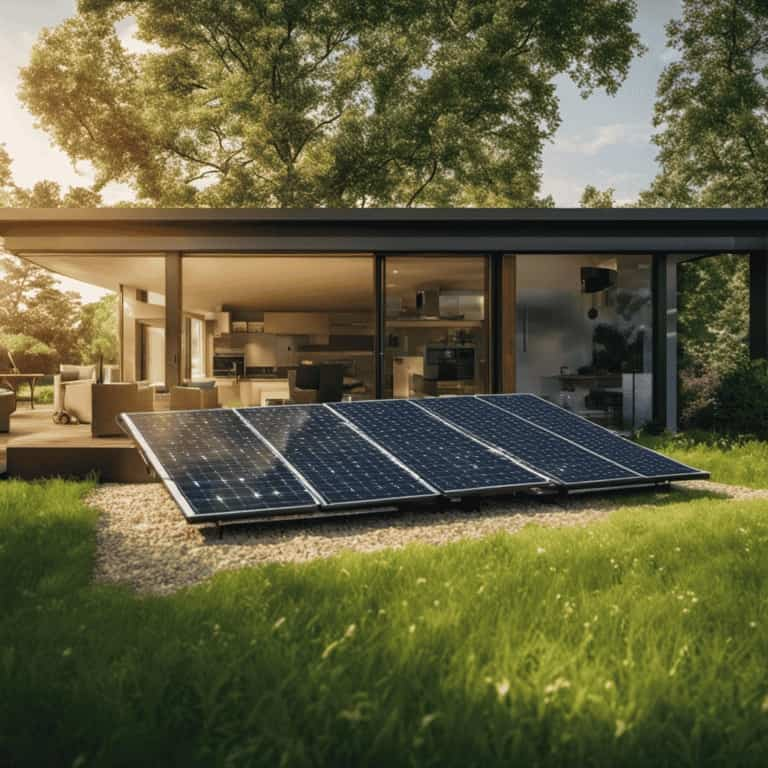
Increased Home Value
Our home’s value can significantly increase when we install a heat pump, as it’s seen as a desirable and energy-efficient feature by potential buyers. According to home appraisal experts, the market value of a property can increase by an average of 5% to 12% with the installation of a heat pump. This means that for a home valued at $300,000, the value could potentially increase by $15,000 to $36,000.
Heat pumps are seen as an attractive feature because they provide both heating and cooling capabilities, reducing the need for separate systems. Additionally, they’re highly efficient and can result in lower energy bills, which is a major selling point for buyers.
By installing a heat pump, homeowners not only enjoy the benefits of energy savings and reduced carbon footprint, but they also have the opportunity to increase the market value of their property. This makes it a smart investment for those looking to maximize their returns.
Now, let’s explore the government incentives and rebates available for heat pump installations.

Government Incentives and Rebates
We’ve got some great news for homeowners considering heat pumps – there are cost-saving incentives available!
Many government programs offer rebates and incentives to encourage the adoption of energy-efficient heating and cooling systems like heat pumps.
These incentives can help offset the initial investment and make heat pumps even more affordable for homeowners.
Cost-Saving Incentives Available
While there are various cost-saving incentives available, such as government incentives and rebates, homeowners can take advantage of these programs to save money on heat pump installations. Here are some key points to consider:

Government incentives: Many governments offer financial incentives to encourage homeowners to choose energy efficient options like heat pumps. These incentives can include tax credits, grants, or low-interest loans.
Rebates: Utility companies often provide rebates to homeowners who install energy efficient heat pumps. These rebates can help offset the upfront cost of the installation.
Long-term savings: Heat pumps are known for their energy efficiency, which can result in significant savings on monthly energy bills. Over time, these savings can offset the initial investment of the heat pump installation.
Environmental benefits: By choosing energy efficient options like heat pumps, homeowners can reduce their carbon footprint and contribute to a greener future.

Increased home value: Installing energy efficient systems like heat pumps can increase the value of a home, making it a wise long-term investment.
By taking advantage of these cost-saving incentives, homeowners can enjoy the financial benefits of heat pump installations.
Now, let’s discuss the specific rebates available for heat pumps.
Rebates for Heat Pumps
To maximize our savings, homeowners can take advantage of government incentives and rebates for heat pumps. These energy efficiency incentives can provide significant financial benefits. The government recognizes the importance of promoting energy-efficient technologies and offers various programs to encourage homeowners to invest in heat pumps.

One popular program is the federal tax credit for residential energy efficiency, which provides a tax credit of up to 30% of the cost of purchasing and installing a heat pump. This can result in substantial savings for homeowners. Additionally, many states and local governments offer their own incentives, such as rebates or grants, to further offset the cost of heat pump installation.
Savings on Maintenance and Repairs
We frequently save on maintenance and repairs with heat pumps. Here are some key ways that heat pumps contribute to these savings:
Reduced breakdowns: Heat pumps are known for their durability and reliability, leading to fewer breakdowns and the need for repairs.
Extended lifespan: Heat pumps are designed to last longer than traditional heating and cooling systems, reducing the frequency of replacements and associated costs.
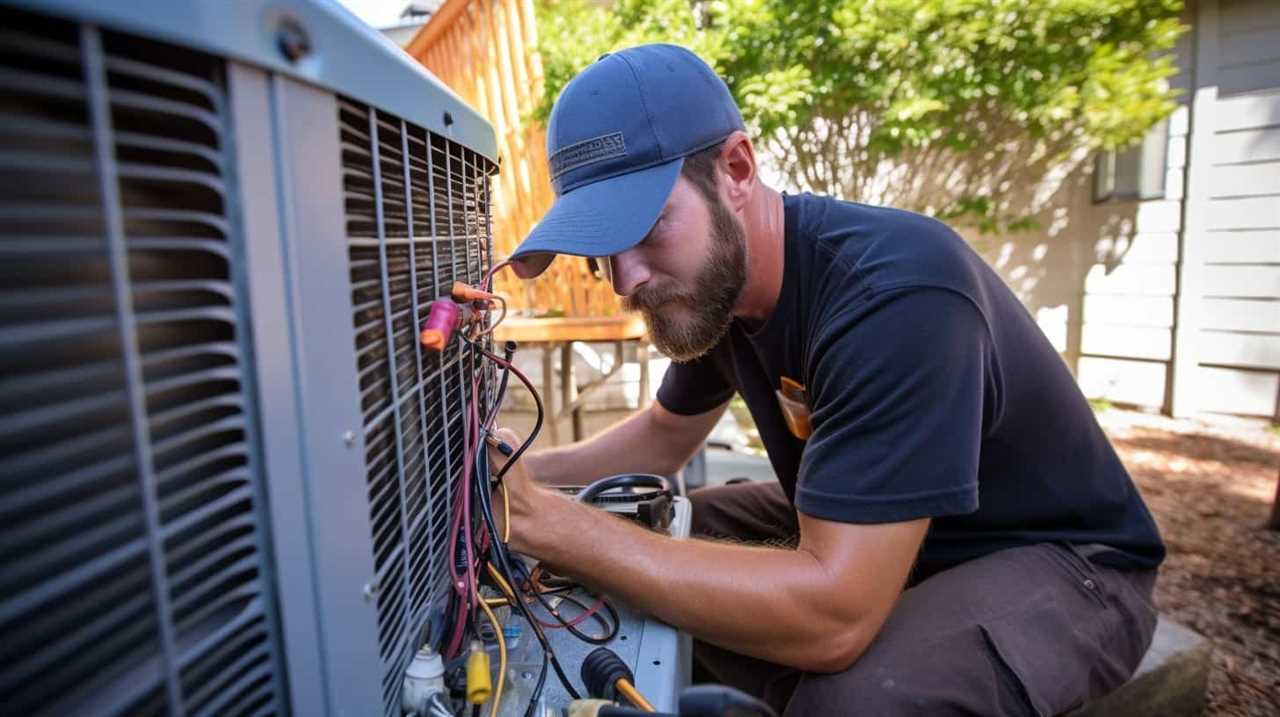
Lower maintenance costs: Heat pumps require less maintenance compared to other systems, resulting in lower maintenance expenses over time.
Energy-efficient operation: Heat pumps are highly efficient, meaning they use less energy to heat or cool your home. This translates to reduced wear and tear on the system, minimizing the need for repairs.
Warranty coverage: Many heat pumps come with extended warranties that cover maintenance and repairs, further reducing out-of-pocket expenses.
Frequently Asked Questions
Are Heat Pumps Suitable for All Types of Homes and Buildings?
Yes, heat pumps are suitable for most homes and buildings. Their efficiency and installation requirements make them a viable option. However, it is important to assess specific needs and consult with professionals for optimal results.
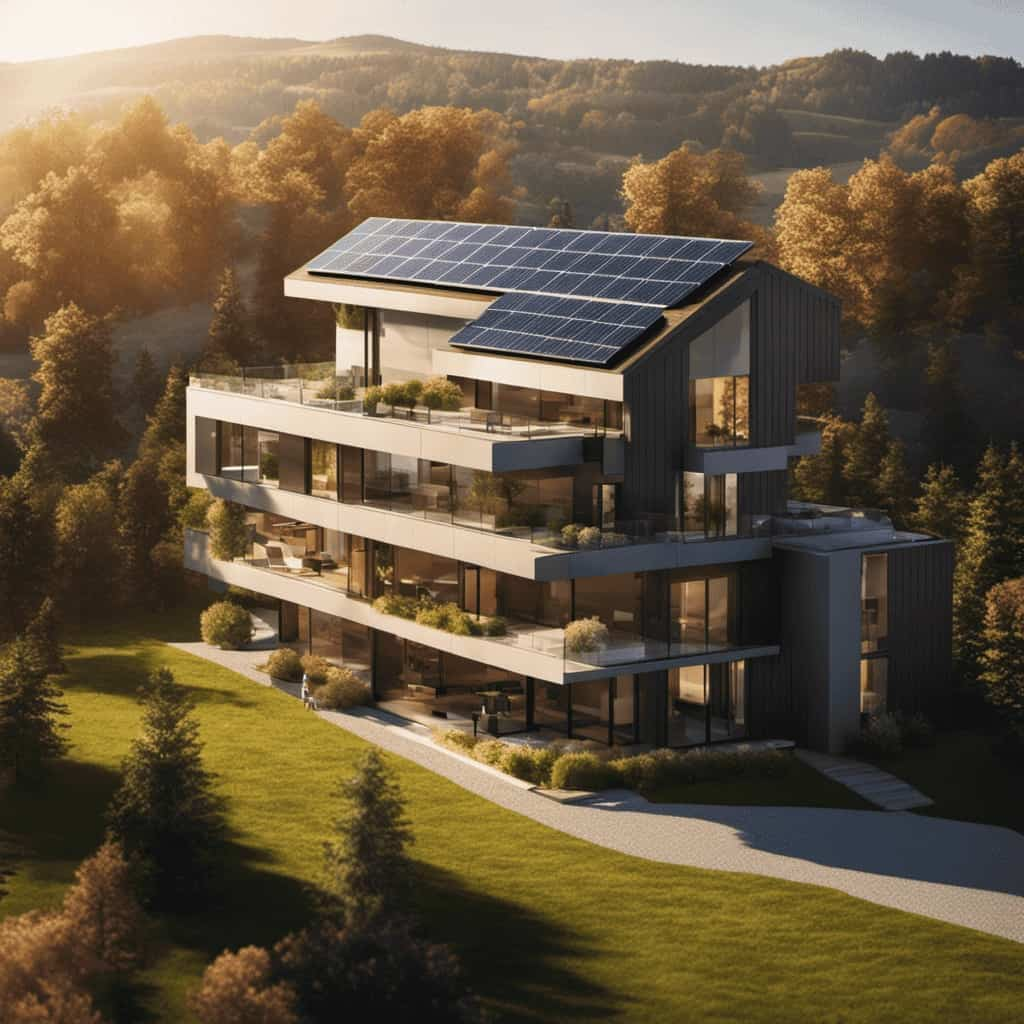
How Long Does It Take for a Heat Pump to Pay for Itself in Energy Savings?
In terms of cost effectiveness analysis, the payback period for a heat pump varies depending on factors such as energy prices, installation costs, and usage patterns. It’s important to consider these factors when determining the time it takes for a heat pump to pay for itself in energy savings.
Can a Heat Pump Be Used as the Primary Heating Source in Colder Climates?
Yes, a heat pump can be used as the primary heating source in colder climates. Heat pump efficiency and performance have improved, allowing them to effectively heat homes even in sub-freezing temperatures.
Are There Any Limitations or Drawbacks to Using a Heat Pump?
There are limitations and drawbacks to using a heat pump. It may not be as effective in extremely cold climates and can require regular maintenance. However, the potential energy savings make it a worthwhile investment.
Are There Any Additional Costs Associated With Installing and Maintaining a Heat Pump System?
There can be additional costs associated with installing and maintaining a heat pump system, such as the initial installation cost and ongoing maintenance costs. These expenses should be considered when evaluating the overall savings potential of heat pumps.
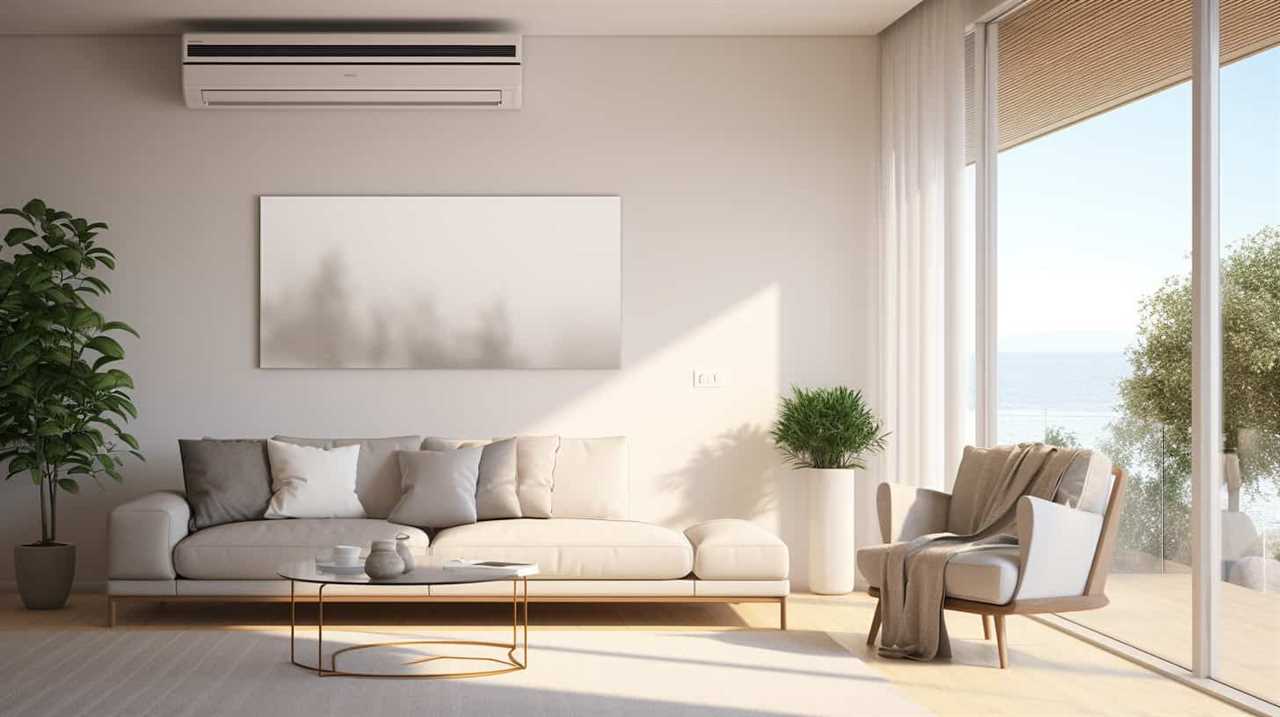
How Much Money Can I Save by Switching to a Heat Pump?
By deciding to switch to heat pumps, you can save a significant amount of money. Heat pumps are known for their energy efficiency, resulting in decreased utility bills. Since they transfer heat instead of generating it, they consume less power. This means you’ll experience substantial savings in the long run by switching to heat pumps.
Conclusion
In conclusion, heat pumps offer a multitude of savings opportunities. From reduced energy bills to lower heating and cooling costs, the benefits are undeniable.
The enhanced energy efficiency leads to long-term cost savings and a decreased carbon footprint. Furthermore, homeowners can enjoy increased home value and take advantage of government incentives and rebates.
Overall, heat pumps are like a refreshing breeze of financial relief, bringing cool savings and increased comfort to your home.
